Syria: Can the Rojava Revolution survive?
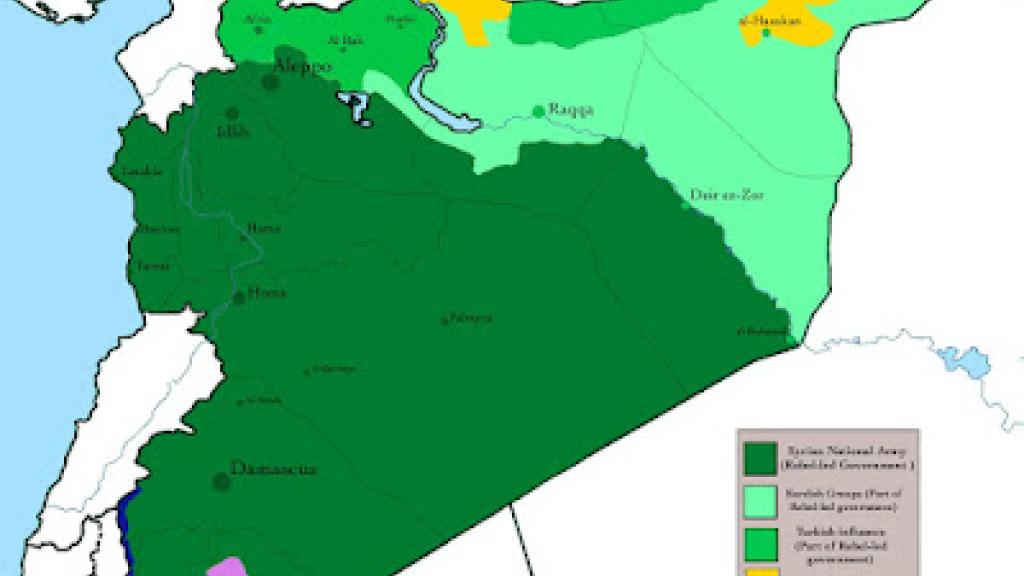
First published at Arguing for Socialism.
This January saw dramatic changes in Syria. From controlling one-third of the country, the Democratic Autonomous Administration of North East Syria (DAANES) and its military forces, the Syrian Democratic Forces (SDF), have been pushed back to the Kurdish heartland in north-east Syria and forced to agree to a very harsh “integration” with the Islamist regime in Damascus.
On January 6 a meeting took place in Paris: Israel, Syria, the United States and Turkey were all involved. It set the seal on what later took place.
That same day the assault began against Kurdish districts in Aleppo. The SDF was soon pushed out of all positions west of the Euphrates. Next it was forced to withdraw from Arab-majority towns east of the river, in the south: Deir Ezzor, Taqba and Raqqa.
Raqqa had been the Islamic State (IS) capital in Syria. It was liberated at tremendous human cost in a gruelling four-month battle in 2017. The Women’s Protection Units (YPJ) played a central role in the victory.
Rojava Revolution
French Marxist Michel Löwy recently gave an interview to ANF News.
Löwy said the Rojava experience must be protected, adding that the coming weeks and months will show whether the Rojava model can survive. He said:
If this experience comes to an end, it would be tragic. Despite all its problems, limitations, and contradictions, Rojava has been one of the most advanced experiences in the world in terms of real democracy and women’s liberation.
For everyone fighting for socialism, women’s rights, and ecology, it has been an inspiring experience. That is why its complete destruction would be a great loss.
Western governments profess a commitment to women’s rights, democracy, multiculturalism and ecology, but in reality they saw Rojava as a threat — they do not want anything like it in the Middle East or at home. So, beyond some empty words they have no intention of doing anything meaningful to support Rojava in its hour of need.
Alliance with the US
Washington has openly thrown the Kurds under the proverbial bus. What was involved? As US envoy Tom Barrack brutally explained, previously the US needed them, now it does not. Washington has instead plunged on Turkey and the Damascus regime.
I think it is incorrect to describe this as a “betrayal”. Washington was never on board politically and never pretended otherwise. The collaboration was never more than a tactical alliance between the US military and the Kurdish/SDF forces.
So, when Turkey seized Afrin in 2018 and two years later seized another chunk of Rojava, the US did nothing. In the light of what has happened, the idea — popular in some quarters — that the Kurds were a “proxy” of the US is simply ridiculous.
Arab involvement
The SDF was a majority Arab formation. Several hundred Arab fighters were martyred in various struggles. A significant number of Arab women joined the YPJ, attracted by the idea of a life free of patriarchal restrictions and commitment to the struggle.
Since the fall of Bashar al-Assad, the new Damascus regime and its Turkish backers have made an enormous and sustained effort to peel the Arab tribes away from their alliance with the Kurds. Arab chauvinism has always been a key weapon of successive regimes in Syria and it was obvious it would feature heavily this time around too. Because the revolution has had a differential impact on Kurdish and Arab society, this tack had a considerable effect.
Any Arab personalities or forces that continue to collaborate with the Kurds will be under mortal threat from Turkey and the Damascus gang.
Turkey’s role
From the foundation of the Turkish republic in 1923, the various regimes there have always been extremely anti-Kurd. There have been massacres, language bans, repression and marginalisation of the 25% of the population that is Kurdish. The regime aims to crush any manifestation of Kurdishness, wherever and whenever it appears.
Of course, Turkey is perfectly happy with the kleptocratic Barzani gang, which dominates the Kurdistan Regional Government (KRG) in Iraq. The KRG is a typical Third World setup, with extreme inequalities of wealth and income. It is completely subservient to Turkey and the US.
Turkey constantly presents Rojava as a security threat. The idea that a few million people who simply want a peaceful life seriously threaten Turkey’s security is completely ludicrous. But what does threaten the Turkish regime is the power of a positive example (feminism, self-government, democracy, inter-ethnic harmony and so on).
In his interview, Lowy also addressed the ongoing process in Turkey aimed at a democratic solution to the Kurdish question, saying that the government of Recep Tayyip Erdoğan has never approached this process sincerely. Löwy said:
The attacks on Rojava are proof of this. The Kurdistan Workers’ Party (PKK) accepted disarmament, yet Erdoğan did not show even the smallest sign of goodwill. Kurdish prisoners remain in jail. The leaders of the legal Kurdish party are imprisoned. Kurdish mayors have been removed from the office. While steps have been taken on the side of the Kurdish movement, there has been no corresponding step whatsoever from the Turkish government.
We might add that Turkey continues building its bases in northern Iraq. Furthermore, Shengal (Sinjar), the autonomous area that is home to the Kurdish Yezidi people, is under constant threat from Turkey or the Iraqi government under Turkish pressure.
It seems that Erdoğan simply wants an electoral boost for his party from the dissolution of the PKK and that is it.
Details of deal
Let us look at what the deal between the Kurds and Damascus involves. All this is taken from the January 30 article on X by MaximeAzadi (machine translation; I’ve numbered the points for convenience):
The main points of the agreement
- Ceasefire between Damascus and the SDF.
- Withdrawal of military forces from the lines of contact.
- Deployment of Syrian Ministry of the Interior security forces in the urban centres of Hasakah and Qamishli.
- Gradual integration of local security forces into the structures of the Syrian state.
- Creation of a military division integrated into the Syrian army, composed of three SDF brigades and one brigade from Kobani, under the authority of the Aleppo Governorate.
- Integration of the institutions of the Autonomous Administration into the Syrian state.
- Permanent positions for current civil servants.
- Guarantee of the civil, cultural, and educational rights of the Kurdish people.
- Safe and dignified return of displaced persons to their areas of origin.
So far, Kobani remains under total siege (by Turkey and the Damascus regime); no refugees have been allowed to return to Afrin and the other Turkish-occupied regions; and Damascus is demanding that the SDF hand over its heavy weapons (i.e., effectively disarm).
Maxime Azadi continues:
What is not stated
- Kurdish rights: To what extent will the civil, cultural and educational rights of Kurds be guaranteed? Will there be a dedicated education system in the Kurdish regions or will Kurdish language instruction be limited to a single optional subject, as Damascus desires? Will these rights be individual, collective or national in nature? No details have been provided at this stage.
- Afrin and Serekaniyê: What guarantees exist for the return of residents to Kurdish cities under Turkish occupation? What will the form of administration, security, and governance be in these regions? Here again, no clear mechanism has been announced.
- Women’s Defence Forces: Will the Women’s Defence Forces be part of the integrated brigades? Will their presence be maintained in the Kurdish regions as it is today? Will they be integrated into the local security forces in the Kurdish regions, or will they be completely dissolved? No specific details have been provided.
- Preservation of identities and ways of life: Will the Kurds be able to preserve the democratic and secular character of their regions, or will it be dominated by Damascus’s vision? This question also applies to all other ethnic and religious communities. Will they be able to preserve their distinctiveness and way of life?
- Applicability of the agreement: The implementation of the agreement remains uncertain in a context where the Syrian regime relies on a mosaic of armed groups, including several jihadist groups and pro-Turkish paramilitary militias, accused of war crimes and crimes against humanity. Some of these factions are still on Western terrorist lists.
- Guarantees and oversight: Who will be responsible for overseeing the implementation of the agreement? What mechanisms are in place to address violations or failures to uphold commitments?
- Justice and accountability: Will perpetrators of serious crimes be prosecuted and held accountable, or will they enjoy de facto impunity?
- Security of the Kurdish population: How can the Kurdish civilian population trust the Damascus forces deployed in Kurdish cities? Who will concretely guarantee the protection of Kurdish civilians on the ground?
Crucial role of solidarity
How bad will it get? As Azadi’s post indicates, things are already bad and could get much worse very quickly.
The Kurdish people and their allies will resist. They still have their armed forces. But they do not want Rojava to be given the Gaza treatment (that is, mass destruction and a general massacre).
International solidarity is of vital importance. Already, the large and repeated actions in Western Europe have put the spotlight on Rojava and forced the Western governments to sound some warnings to Damascus. The large protests in Iraqi Kurdistan have also been notable.
Was Rojava doomed from the start? That is not a revolutionary attitude. Was the Russian Revolution doomed? Is the human race doomed by climate change? In a particular situation people seize their chance and risk everything to push the struggle forward to a new level. The future is not given; the struggle decides.
Sheikh Akram Mashoush: ‘After all the martyrs, how could we suddenly ally with parties whose mentality we do not believe in?’
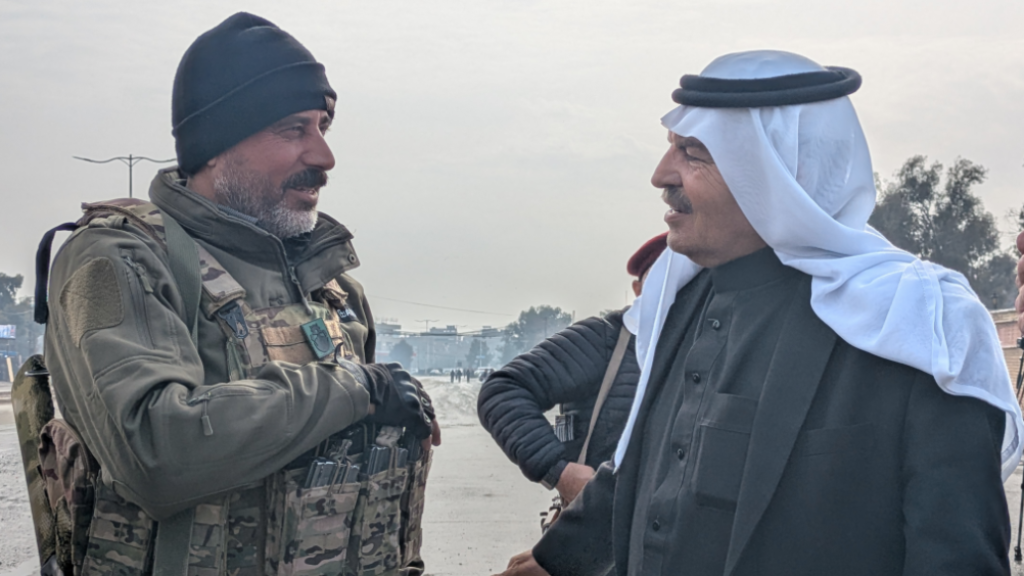
First published at Rojava Information Center.
What is the history of your tribe in this region? How was it during the Assad government?
The tribal connections between different tribes and communities go back decades, not only to the Assad era, but even to the Ottoman Empire. In particular, the links between Arab and Kurdish communities date back to Ottoman times, continued through the French mandate, and survived throughout the Assad regime. These connections endured all those eras and were never broken. After the establishment of the Autonomous Administration (AANES), these links did not disappear. For those of us who have a conscience, they cannot be ignored. We have family ties, neighborly ties, and shared village life. In our villages, Kurds and Yazidis live together with Arabs. These connections cannot be forgotten or denied. They were not created by us, but by our grandfathers. They made our communities connected and cohesive, and with time, they have only grown stronger. Today, when we see our Kurdish brothers suffering and under attack, can we abandon them? We see our Kurdish brothers being attacked by ISIS and by different forces that have taken control of parts of Syria. No, we cannot abandon these humanitarian, social, and ethical bonds. These ties force us to remain together — not only within AANES, but in all aspects of life. Even if AANES were to end, we would not separate or cut these ties. They are social bonds based on coexistence. These connections go so deep that they even exist at the level of milk kinship, a Middle Eastern tradition in which a child breastfed by a woman who is not his mother becomes her milk-son or milk-brother to her children. Such ties are never forgotten, regardless of what happens. We will continue on this path no matter what we go through.
In Hasakah, there are around one million people from the Jabour tribe. This tribe has a different and special relationship with the Kurds compared to other tribes. The Jabour tribe has a long history of ties with the communities of the region, and because we lived side by side with Kurds in mixed areas, these ties became even stronger. My own name, Akram Hajo Mashoush, comes from a Kurdish person from Tirbespiye. These ties are not new. We learned the Kurdish language through living together. It is impossible for us to abandon all of this simply because of military circumstances.
At the military level, the situation of Jabour was different. Even during the Assad era, we were marginalized. Unlike the Shammar tribe, which comes from broader regions and formed the Sanadid Forces to protect borders, we did not form a separate military entity. We preserved our tribal structure and focused on social cohesion and family ties through marriage with different communities. With full respect to other tribes, these factors gave Jabour a unique relationship with the Kurds. There are members of Jabour from Sheddadi married to Kurdish women in Darbasiye, and the same exists between Tel Brak, Qamishlo, and Derik. These ties were not invented or recently created; circumstances simply made the Jabour tribe more closely connected to the Kurds than any other tribe. What is the SDF? It is a force formed from tribes. There is a clan called Mahasin with more than 5,000 fighters within the SDF. There are more than 800 martyrs from the Jabour tribe within the SDF. We did not seek an autonomous entity or structure; we only wanted to protect ourselves. We joined the fight against ISIS because of its brutality – killings, slaughter, oppression, and harsh treatment of women. These conditions only strengthened our cohesion and unity.
What is your opinion about the most recent agreement between the SDF/DAANES and the Syrian Transitional Government (STG)?
The fundamental principle of the current agreement is the ceasefire. As people everywhere welcome such understandings, we, as people living in the area, strongly support and bless it. Government forces are only a few kilometers away, and we are surrounded. Deadlines were given for evacuating areas. Therefore, any ceasefire or agreement is something we genuinely support. All notable figures of the Jabour tribe welcome it. We have always sought a ceasefire between the Damascus government and the SDF. This agreement must lead to positive outcomes that serve the Syrian people. Fighting only brings bloodshed, displacement, and deeper divisions among communities. We want guarantors to take responsibility and ensure the agreement is implemented and not violated. We support the SDF and AANES delegations in their agreements related to security arrangements, integration, and the formation of brigades within the Syrian Army. In the end, we are Syrians. We do not want Syrian blood to be shed. All those killed are Syrians. None of the foreign states have lost their citizens; only Syrians pay the price. This agreement aims to preserve Syrian blood, and its most important pillar is the ceasefire, which can revive coexistence.
Can you explain about the recent tribal defections from the DAANES to the STG?
Turkey has worked to divide the tribes in order to destroy the social fabric. They do not see the SDF as representing Syrians, but only as representing Kurds, and they consider it an enemy, despite the SDF having over 15,000 martyrs and more than 50,000 wounded. Some tribes were influenced by this mentality, including ISIS-like thinking. Turkish intelligence (MIT) also played a role, convincing some tribes — not all — that their situation would improve if the SDF were gone. Even some figures within AANES, such as Muhbash, the head of the negotiation committee, acknowledged this. Tribes are not political organizations and lack deep political experience. They were subjected to pressure, threats, and promises of financial support. This explains why some switched sides. When cities like Tabqa, Raqqa, and parts of Deir ez-Zor fell, uprisings happened even before the Syrian army arrived, proving that there were prior plans. Weaknesses in the security experience of AANES prevented early detection of these breaches. At the same time, the SDF and AANES did not want to be dragged into cycles of violence. They did not want destruction or to kill their own brothers and sisters who rose against them. That is why these areas fell quickly. Many of my relatives and cousins are in Damascus. They offered me defection, positions, and benefits. I completely refused. This goes against my principles and conscience. After all the martyrs, sacrifices, and coexistence, how could we suddenly switch sides and ally with parties whose mentality we do not believe in? This is for those in Damascus. But unfortunately, some members of our tribe, here in the area, used extremely bad language toward me. They threatened me, sent insulting messages and videos, and attempted to intimidate me.
After the agreement is implemented, we hope bloodshed will stop and the situation will be organized. We are all Syrians, and no one should be denied their rights. The Kurdish people have a special situation and legitimate rights that must be recognized. They were among the first to fight and offer martyrs in the revolution, before the formation of the SDF, through the YPG and YPJ. They protected everyone, including Arab communities, even before the creation of the SDF and AANES.
Do you have any critiques for the DAANES?
We do acknowledge shortcomings in services and administration. These were not military or political failures, but administrative ones. Despite having agricultural land, oil, and resources, we failed to meet people’s needs. There was no water, electricity solutions were lacking, bread shortages existed despite wheat abundance, and fuel crises persisted despite oil resources.
These failures are real. However, they do not justify switching sides simply because AANES is weakening. Administrative and service failures exist, but abandoning everything because of them is not justified.

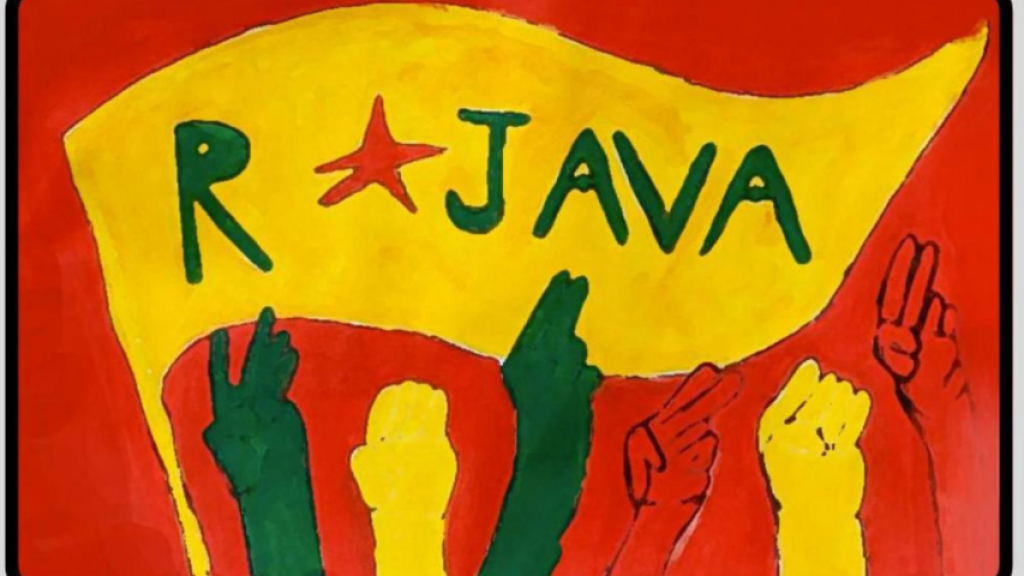
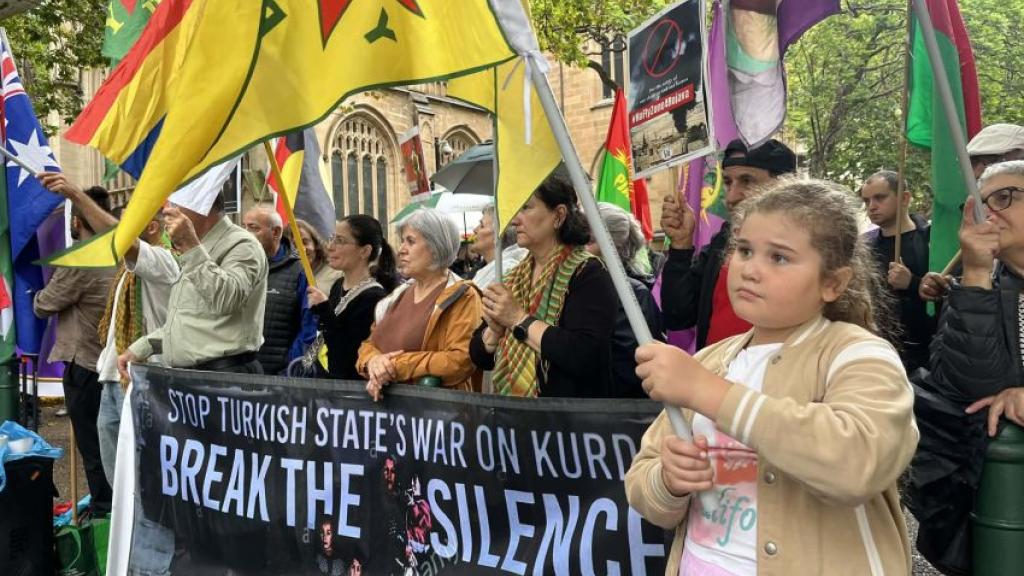
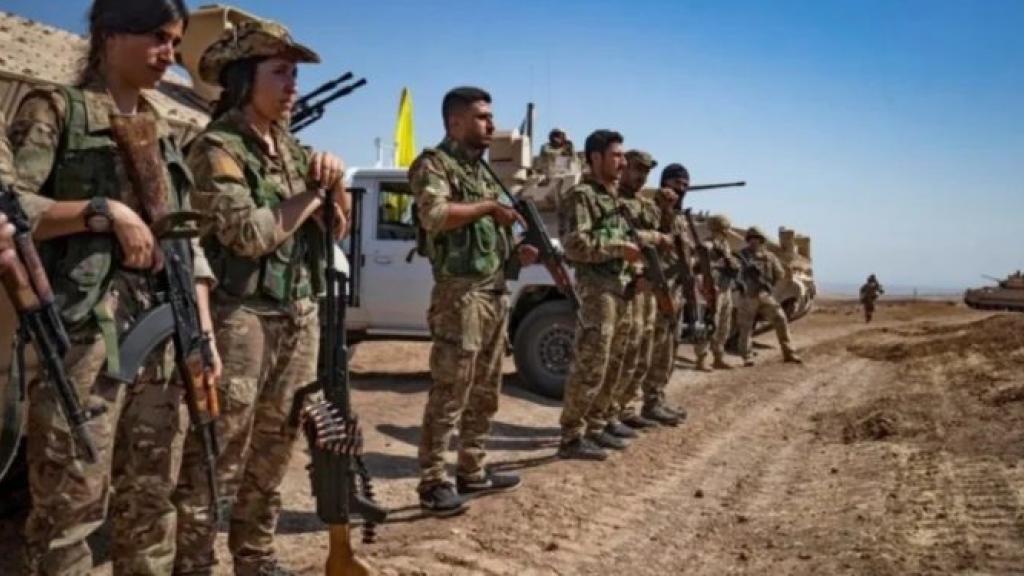
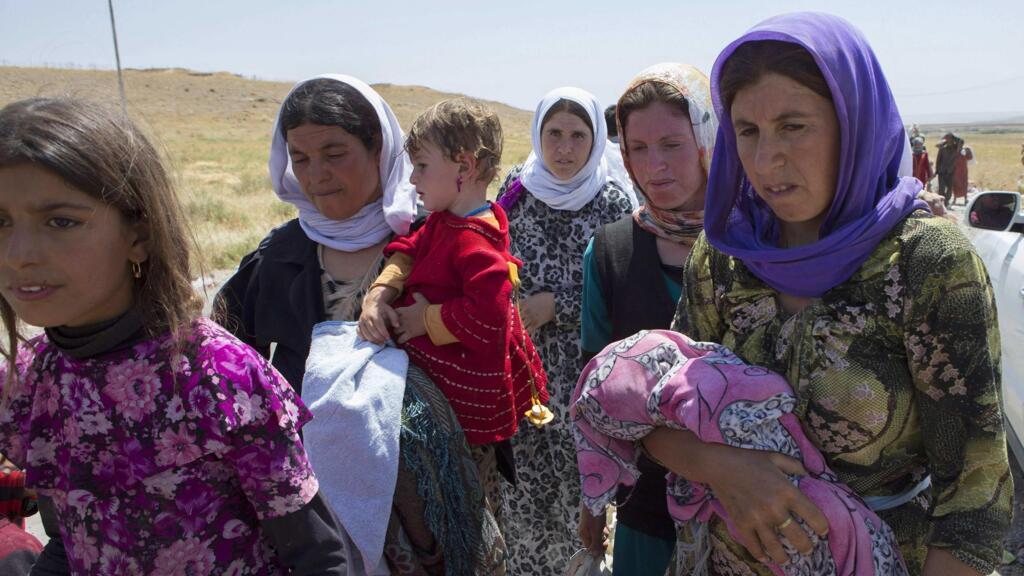 Displaced people from the Yazidi minority flee violence in the Iraqi town of Sinjar at the Iraqi-Syrian border crossing in Fishkhabour on 13 August, 2014. © Reuters - Youssef Boudlal
Displaced people from the Yazidi minority flee violence in the Iraqi town of Sinjar at the Iraqi-Syrian border crossing in Fishkhabour on 13 August, 2014. © Reuters - Youssef Boudlal